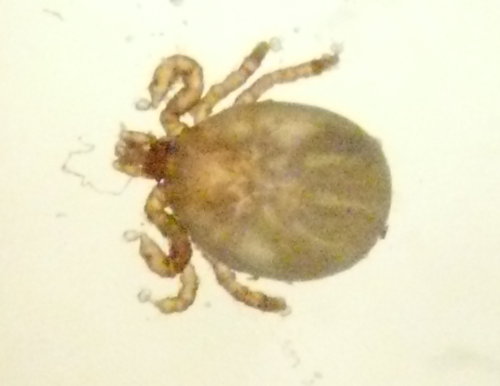Difference between revisions of "Clinical Case 7 - Page 3"
Jump to navigation
Jump to search
| (2 intermediate revisions by one other user not shown) | |||
| Line 4: | Line 4: | ||
[[Image:Clinical Case 7 03.jpg|thumb|center|500px|(Courtesy of C. Antonczyk)]] | [[Image:Clinical Case 7 03.jpg|thumb|center|500px|(Courtesy of C. Antonczyk)]] | ||
| − | |||
| − | |||
| − | |||
| − | |||
| − | |||
| − | |||
| − | |||
What is this? | What is this? | ||
| Line 16: | Line 9: | ||
How would you treat this condition? | How would you treat this condition? | ||
| − | *<font color="white"> Fin was treated with a spot on application of fipronil and as many of the parasites as possible were removed manually. Care must be taken not to break off the mouth parts when reomoving | + | *<font color="white"> Fin was treated with a spot on application of fipronil and as many of the parasites as possible were removed manually. Care must be taken not to break off the mouth parts when reomoving tick as they can cause an irritating local reaction. </font> |
<big><center>[[Cases from General Practice - Small Animal|'''BACK TO CASES FROM GENERAL PRACTICE - SMALL ANIMAL''']]</center></big> | <big><center>[[Cases from General Practice - Small Animal|'''BACK TO CASES FROM GENERAL PRACTICE - SMALL ANIMAL''']]</center></big> | ||
| − | |||
| − | |||
| − | |||
Revision as of 20:37, 20 February 2008
Courtesy of C. Antonczyk
What is this?
- This is a tick. It has 3 pairs of legs which makes it a larval tick. Nymphs and adults have four pairs of legs.
How would you treat this condition?
- Fin was treated with a spot on application of fipronil and as many of the parasites as possible were removed manually. Care must be taken not to break off the mouth parts when reomoving tick as they can cause an irritating local reaction.
